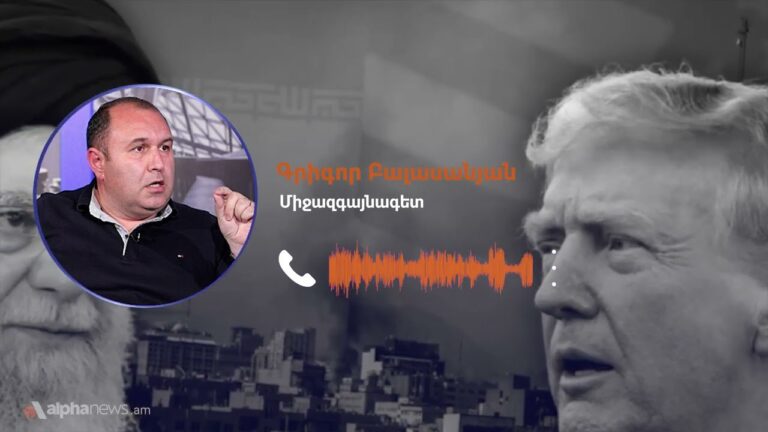Tehran and Moscow responded to O’Brien’s visit to Armenia
June 18 2024, 14:05
The US Assistant Secretary of State for European and Eurasian Affairs, who visited Armenia last week, had several matters on the agenda: providing political support to Nikol Pashinyan amid domestic political turbulence, as well as declaring US geopolitical plans for the region.
Like John Bolton in 2018, James O’Brien in 2024 revealed the main part of the true agenda in his interview with RFE/RL’s Armenian service. “In our view, there’s a once-in-a-generation, maybe several-generations, opportunity to build a trade route from Central Asia across to the Mediterranean,” said O’Brien. “That can come only if there is peace between Armenia and Azerbaijan.”
In other words, James O’Brien was talking about a transport corridor that could pass through Armenia along several routes. Add to this the fact that some members of the Civil Contract Party said that “a third party, a certain private company, may ensure the functioning of communications,” as well as Nikol Pashinyan’s statement that “communications can be opened even before the signing of the peace agreement,” and you will understand that the authorities are ready to provide a corridor, to provide it under the wording of “sovereignty,” and give it to an “independent private company.” Moreover, we are ready to do this in the shortest possible time.
Today, it was even announced that the potential introduction of a toll road network in Armenia. “The launch of the North-South transport corridor will lead to a large international cargo flow. Therefore, it will be necessary to withdraw local flows from there,” Nikol Pashinyan said in Syunik.
Tehran and Moscow understood perfectly well the reason for the visit of the American diplomat. That is why the Iranian and Russian Foreign Ministries issued a joint statement on June 16, in which they spoke out against the interference of non-regional players in the affairs of Transcaucasia. The statement also noted that it is important to maximize the potential of regional mechanisms such as the 3+3 platform (Azerbaijan, Armenia, Georgia, Iran, Russia and Turkey) to respond to the challenges facing the region.
The overwhelming majority of experts from Russia and Iran agree that this statement was a signal, first of all, to Armenia. Countries with a centuries-old history of continuous statehood are well aware that large extra-regional states penetrate into certain regions of the world precisely through small countries. In other words, two of the three regional powers are making a special statement today against Nikol Pashinyan’s policy…
At the same time, Azerbaijan is actively trying to improve its relations with Iran, and Russia has almost raised its relations with Azerbaijan to the level of a strategic partnership.
In this regard, Pashinyan’s purposeful policy of outright confrontation with Iran and Russia, with the parallel growth of Azerbaijan’s interaction with Iran and Russia, creates a “historical window of opportunity” for Baku and Ankara to receive a number of territories from Armenia. The statement by Iran and Russia suggests that we have approached a new regional confrontation. If Pashinyan crosses this “red line” with regard to the interests of Iran, Russia, and Armenia itself (since providing an extraterritorial corridor through the territory of Armenia to any entity contradicts Armenia’s strategic interests), we will inevitably enter a period of new upheavals…
Think about it…







